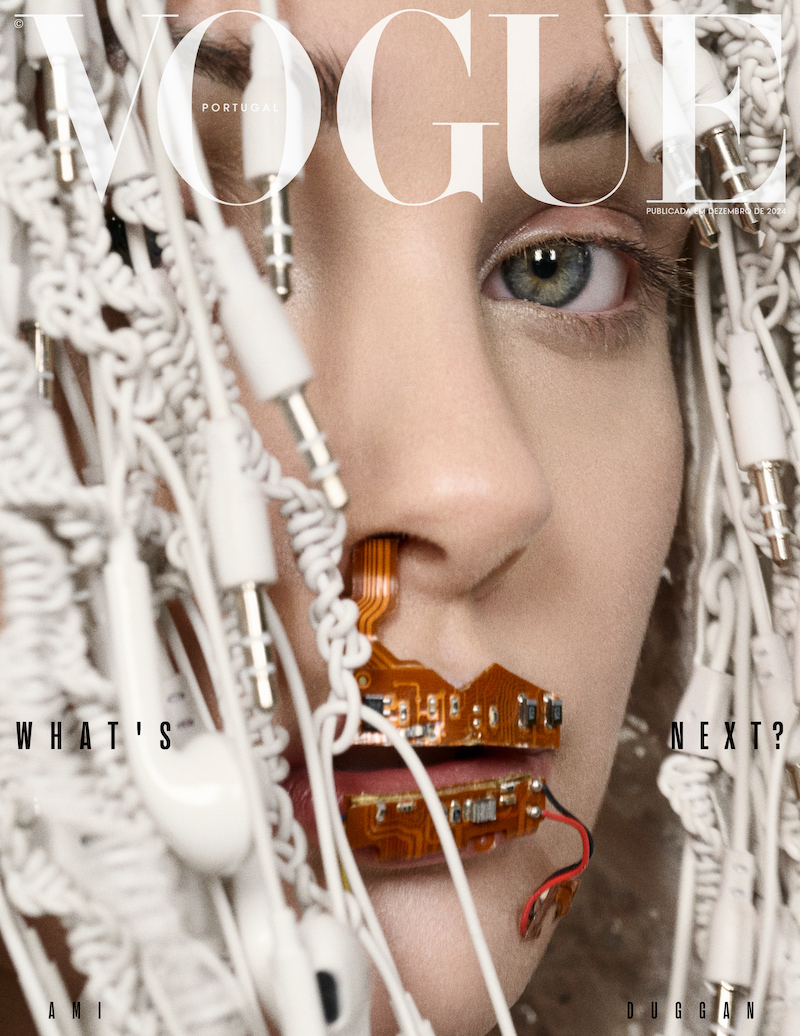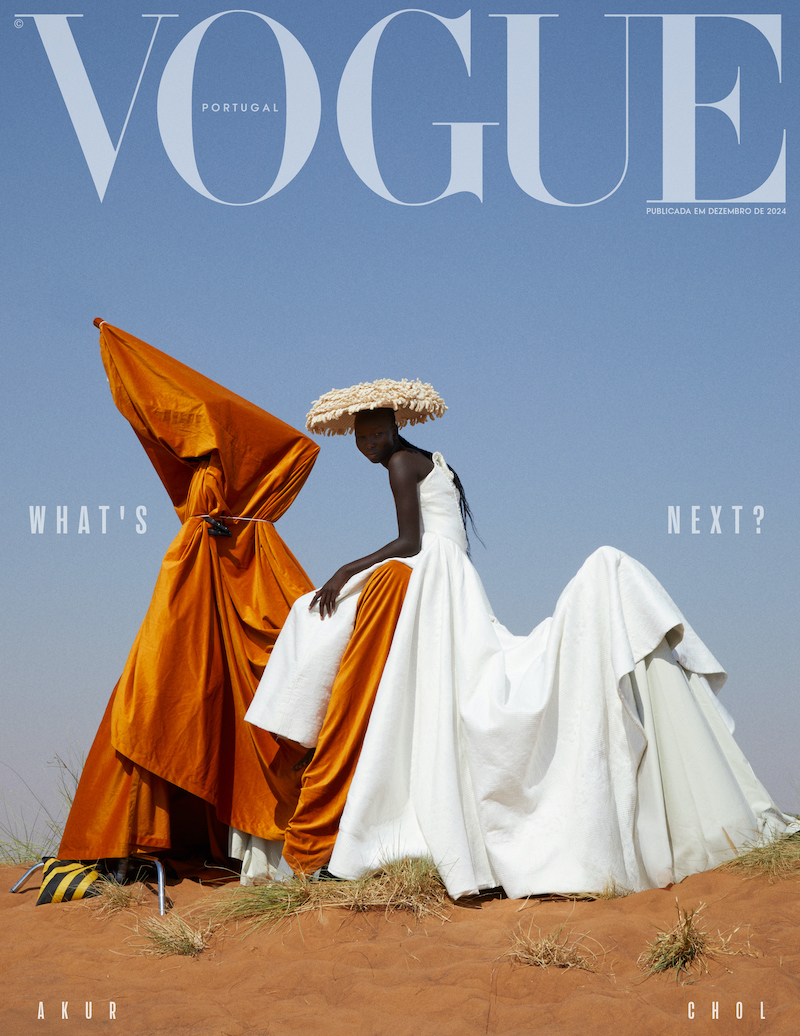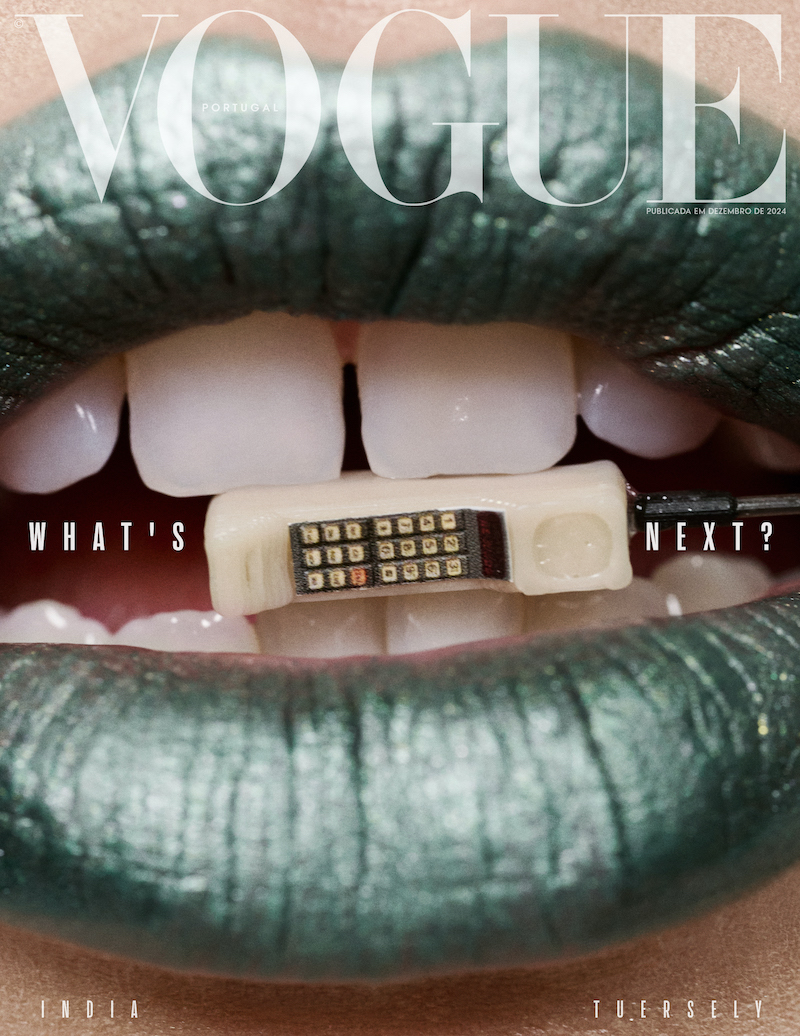Photo © Avery Swail.
"It is not in the stars to hold our destiny but in ourselves” - William Shakespeare
There's no Future without a Past
Whenever I think about the 90s, or some time that occurred before most of us were on the Internet and had cell phones, it seems like a hundred years ago. The letters arrived once a day, predictably, at the postman's hands. And news came in three formats – radio, television, print media – and at set times.

Ami Duggan for Vogue Portugal
Jamie Nelson
Perhaps each generation reflects on how the disruptive technologies of their time are destroying civilization—after all, Italo Calvino complained about the creation of the newspaper as a troubling distraction, and a 12th-century Zen monk thought the same about books. But the truth is that the more subtle effects of current communication technologies affect us psychologically and at the behavioral level – there is a destruction of the very structure of time, which controls our everyday life and its rhythm.
The time spent had rhythm and space so you could do one thing at a time, it had different parts, mornings included this and evenings that, and many of us had these schedules in common. We could read while listening to the radio, but we didn't check emails while responding to messages on social media, or checking notifications from news sites while talking on the phone. Telephones were plugged into the wall or, even without wires, remained stuck in the house. Sound quality was generally good, and people had long, deep conversations of a kind almost unknown today, now that phones are used while driving, or while shopping.
Letters turned into emails, and for a long time, emails had all the depth and complexity of letters. Then, emails deteriorated and turned into something more like texting… Texting, which at first, was subject to the limits of telegrams – the cutting-edge technology of 1844 – and was almost as difficult to send. Soon, telephone calls were made mainly on cell phones. Communication began to be reduced to peremptory practical phrases and fragments, while the subtleties of spelling, grammar and punctuation were set aside, along with the more lyrical and profound possibilities, and all too often reduced to acronyms and emojis. Communication between two people often turned into group conversations: telling all your Facebook friends how you felt and tracking the popularity of your post. Our lives have become ranked, and the reach of our communication is now governed by an algorithm.

Akur Chol for Vogue Portugal
Ricardo Abrahao
Previous technologies have expanded communication, but I don't know to what extent the latest round is its contraction. I think of the way we lived before these new network technologies as having two poles: solitude and communion. The new conversation puts us somewhere in the middle, easing the fear of being alone without risking real connection. Sometimes I feel like I'm in a bad science fiction movie, where we are all ruled by the urgency and constant presence of the cell phone and large technological institutions.
A restlessness has come over many of us, a feeling that we should be doing something else, no matter what we are doing, or doing at least two things at once. It's an anxiety to keep up, not to be left out or left behind. I think it is for a time that we no longer have, and that it is difficult to imagine recovering. It's my fault, no doubt, but it's also yours - it's everyone's fault.
It's hard right now to be with another person completely and uninterrupted, and it's hard to be truly alone. The beautiful art of doing nothing in particular, also known as thinking, or meditating, or reflecting, or simply moments of being, was part of what happened when you walked, without a phone, alone, or looked out the train window, or contemplated the landscape, but new technologies have flooded these open spaces. The space for free thought is routinely considered empty and filled with sounds and distractions.

India Tuersely for Vogue Portugal
Jamie Nelson
It's a slower pace that needs a manifesto that explains what vinyl records, a good book and homemade bread have in common. We won't bring down corporations through knitting—but understanding the pleasures of knitting, pulling weeds, or making pickles can articulate the value of this world outside of electronic chatter and distraction, and within a more majestic sense of time. A time back to ourselves, with less technology and algorithms, returning to analogical, to physical touch that engages all of our senses and gives us back the humanity we seem to be losing. At the end of the day, what comes next is all up to us.
Footnote: this issue, dedicated to the theme What’s Next was thought of and produced with the help of technological tools, but only with natural intelligence, no artificial added.

Anne Floor for the Jewelry Supplement of Vogue Portugal.
Rocío Ramos
Originally published in Vogue Portugal's What's Next Issue, from December 2024. Full credits and stories in the print issue.
Most popular



Relacionados







